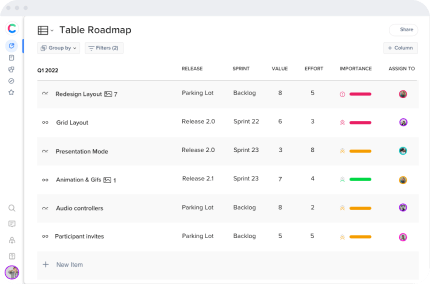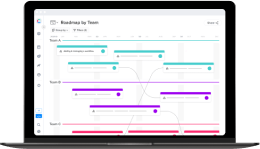What is fibonacci agile estimation?
Fibonacci agile estimation is a series of numbers used to determine the estimated time and resources necessary to complete a specific activity. The numbers are in an exponential pattern and are mainly helpful to product managers.
Here is how this technique works,
● A job or activity gets assigned points depending on its size and complexity. This means that large and complicated jobs get greater points while less complex and small tasks get lesser points.
● The points are 1,2,3,5,8,13,21,34 and so on. The next number is the sum of the two preceding numbers.
When Can a Team Use Fibonacci Agile Estimation?
A team can use the Fibonacci Agile Estimation in a variety of tasks. Mainly it helps where there is a group task that needs dedication and limited time for completion.
For example, a software development team may have a client requiring software that helps in stock-taking and reconciliation across several branches. The team may agree on all the necessary features to be included but not how long each component will take to be input. This forces the group to sit down and use the Fibonacci Agile Estimation to determine each feature’s complexity and required resources for proper planning.
After agreeing, they can weigh the activities which helps them understand each task’s complexity. Later on, this is used in prioritizing and resource allocation.
What is the Importance of Using the Fibonacci Agile Estimation?
As seen in the case example, the Fibonacci tool is essential and helps in the following ways;
Helps in Prioritizing Tasks
The Fibonacci Agile Estimation is a vital estimation tool. The point allocation mechanism helps a team know which urgent tasks require more time and resources for execution.
The urgent ones are visible for quick action, and the not-so-urgent ones can wait. The tool also bridges the gap between activities. The gaps are well-thought-out due to the exponential rise in the numbers. Thus, no job is unnecessarily too near the other or too far away.
The result is that managers can determine complex and time-consuming tasks, thus dedicating the necessary resources.
Allows for Knowledge Sharing
When tasks get allocated points, it is not on a random basis. Each team member contributes their views on how they view the complexity of each job.
The discussion and sharing of thoughts help members tap into each other’s knowledge, thus enhancing knowledge flow and better teamwork.
Avoid Backlogs of Tasks
Everyone hates the pressure of unending tasks, which sometimes are preventable with proper planning. Fibonacci helps eliminate such cases. The point allocation helps managers and everyone else know urgent and priority tasks.
In the end, no one will be running up and down trying to meet deadlines which in most cases are practically impossible.
The Fibonacci tool is unique but helpful to every product manager doing product management workflows. It helps managers understand where to prioritize and pump more resources and where not to. Practically, any business can use it to perfect its task execution strategy and enhance its effectiveness.


